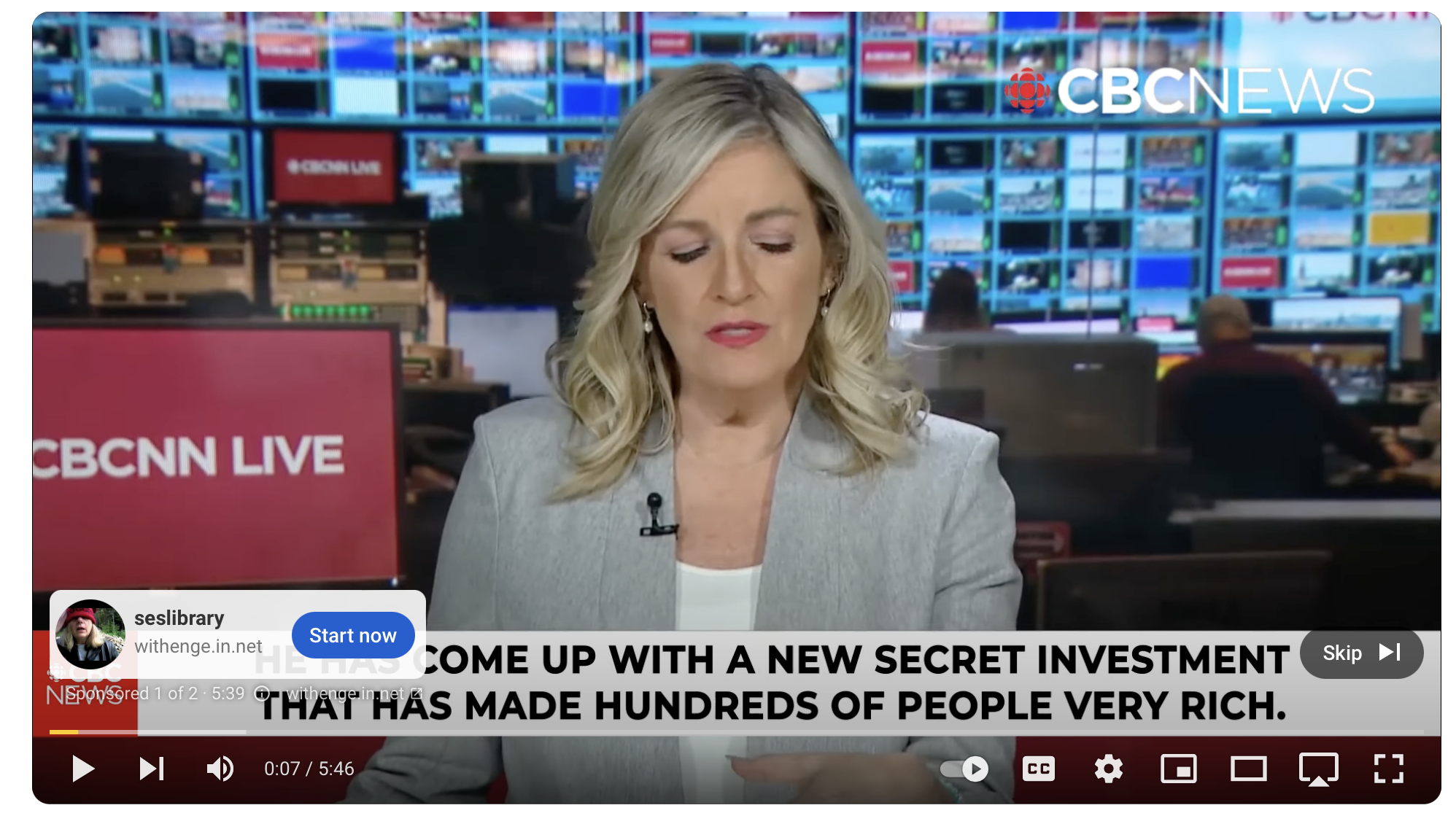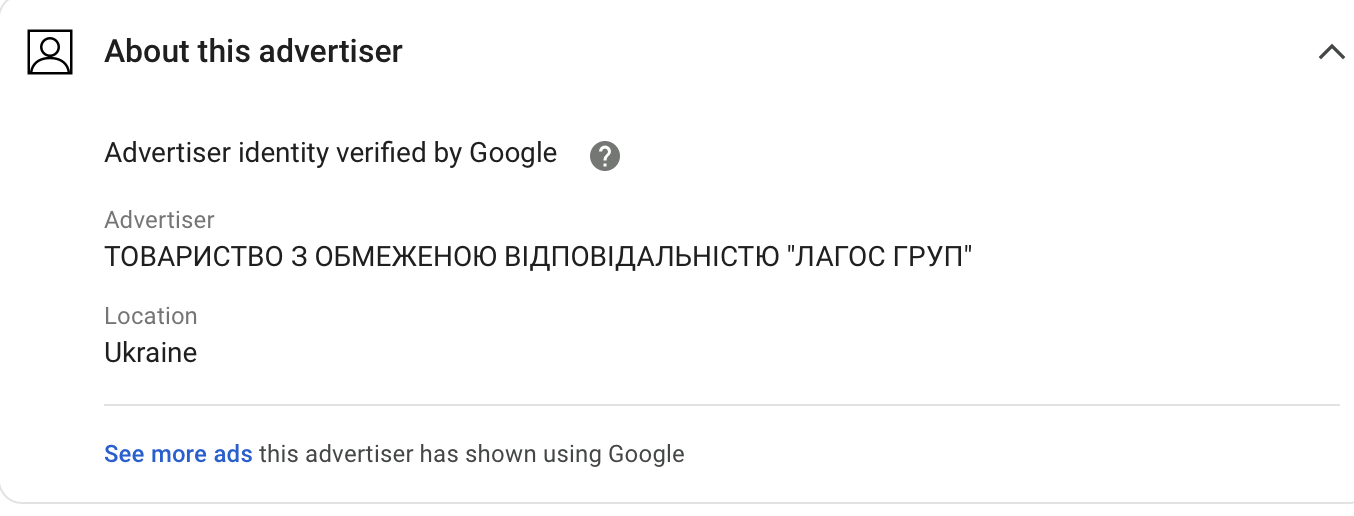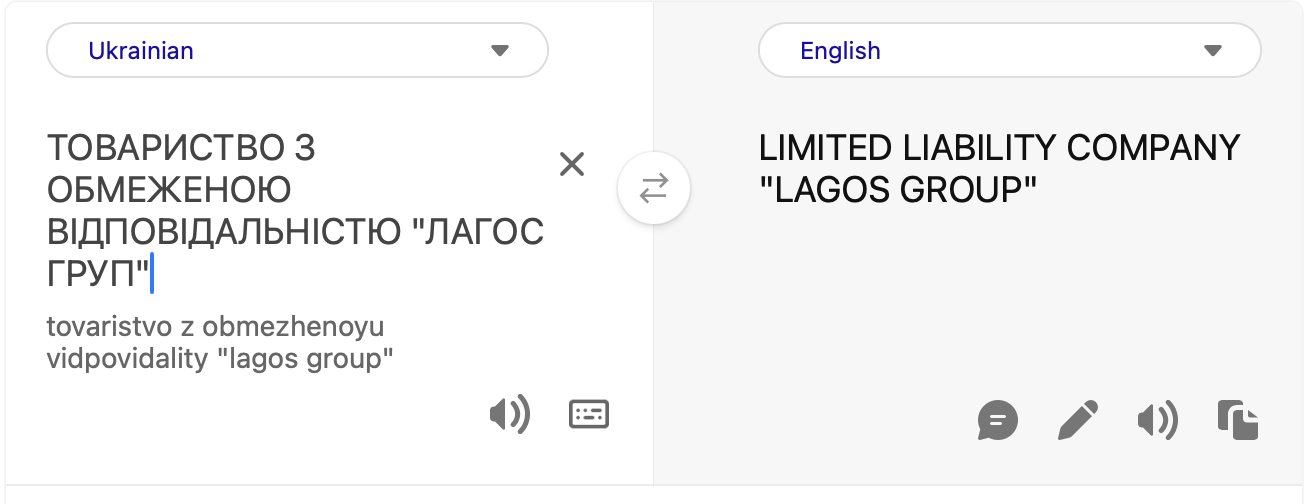I regularly get calls from people who are the victims of Internet-based fraudsters. I have some fairly standard tips for them (see below!) but there's little that can be done once they're already a victim. Everyone's aware of the amount of online crime but few people know how these crimes happen. How do criminals manage to meet so many people? How do they reach the victims? In many of the cases they do this by placing ads on YouTube, Facebook, and other platforms. The ads lure people into the crimes by pretending to be the official sites of legitimate businesses and then they're robbed by lookalike exchanges, dealers, wallets, or other types of frauds. Below is an example from a YouTube ad I saw recently.

YouTube is absolutely full of these scams (and it's a part of the larger Google ad network, which is ferociously profitable). Scams pay the best for ads because they're 100% profit (since they steal all the revenue
). YouTube makes it very hard to report these ads (I couldn't figure out how, see dark patterns
) but at least they let you know who's behind the ad. In this case, the ad is supposedly by a Ukrainian company that's called Lagos Group
.


I'm not sure if that's a joke, since Nigeria is strongly associated with online scams, but it's probably not a real company in Ukraine. And even if it was, why is this sort of ad accepted at all by YouTube? They have amazing image recognition software that can surely spot that this is absolutely not an ad by the Canadian state broadcaster: CBC.
These ads bring in billions a year for the big tech companies, but the ad profits are at the expense of fraud victims. A shocking number of people click on ads and then get lost in a maze of webpages that follow the ad, ultimately leading them to what sounds like a great opportunity.
This type of ad scam that leads to fraud is a major pipeline for harm that YouTube not just isn't addressing, but actually profits from. I appreciate it's difficult to do, but this example is a very obvious one that AI systems can surely detect. I tried with ChatGPT through Bing Chat (because it supports image uploads), but unfortunately it wasn't able to give a clear answer. That said, this image isn't a hard one for AI systems trained to detect fake ads. And YouTube absolutely knows that the advertiser that is supposedly a Ukrainian company called Lagos Group is not the official CBC and shouldn't be running an ad featuring the CBC logo (and a made up CBCNN logo).
There's intense focus on the cryptocurrency industry to do more about frauds and scams, but a major partner in online frauds is the online advertising industry. And I don't think the answer is to ban all ads that mention cryptocurrency, because in the example ad above, it's not at all clear this is about cryptocurrency. There's many kinds of frauds, and they tend to use cryptocurrency as a means to cash out the ill-gotten loot rather than as an integral part of the scam. This is an issue that goes well beyond cryptocurrency.
Standard Advice About Being The Victim Of Fraud
1. Don't send more money! Scammers very often try to get victims with a demand for payment of "withholding taxes" or other nonsense as a condition of sending you back your money. Amazingly, many people are victims twice, once on day 1 and again when they're defrauded for fake fees/taxes as part of exiting the scam (pro tip: there's no exiting the scam).
2. Report it to your bank (or wherever the payment was drawn from). In some cases they can recover money.
3. Report it to law enforcement. This almost never gets action, but it does at least help promote awarenesss among law enforcement and might do some good as part of an investigation.
4. Try to figure out who scammed you. This is a first step to taking civil action, and it'll help with your report to law enforcement. Don't assume anyone else will investigate anything and you might be well-placed to figure it out. Sometimes criminals are lazy or bad at crime, so you might be able to figure out their real identities.
5. Don't feel bad. Scammers often try to create a sense of powerlessness and embarrassment in the minds of their victims. You're a victim of crime, and often smart people are the ones who get scammed for the most amount of money (because you need to be relatively smart to even understand what the scammers are saying to you about whatever the fraud scheme is).
6. Try to network with other victims, if you are a part of a group-based scam. They may have other information.
7. Don't waste money on fraud recovery services, some of these are also scams! There's a type of fraud where companies pretend to offer fraud recovery services and then take a few thousand dollars more from the victim.
8. If there's a lot of money involved, a lawyer might make sense. But beware of lawyers who don't know much about this type of work, as they might think they're helping you but actually it's throwing good money after bad. Be calm and rational about how you respond to this unfortunate event. Lawyers can rarely help because the criminals are too hard or impossible to identify, and that's not really the sort of thing lawyers do. A private investigator might be a better first step for some people.
9. Read advice online about being the victim of fraud. There's lots that's been written. Take some time to read through this advice and make sure you're going to make a rational next move about the loss.
10. Warn your friends and family about becoming the next victim of fraud. Don't feel bad - be an advocate. You can help others avoid the schemes of international criminals who target Canadians from abroad with various clever schemes.
Ideally: Don't Become A Victim
Use reputable cryptocurrency dealers to buy and sell crypto. There are many in Canada that are registered with the Ontario Securities Commission. Always go to their official website and never click on ads. Be careful to steer past the first results on a web search, many of which are often barely marked as being ads.
